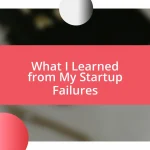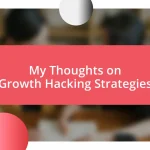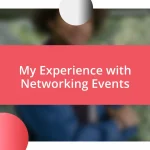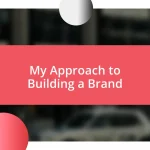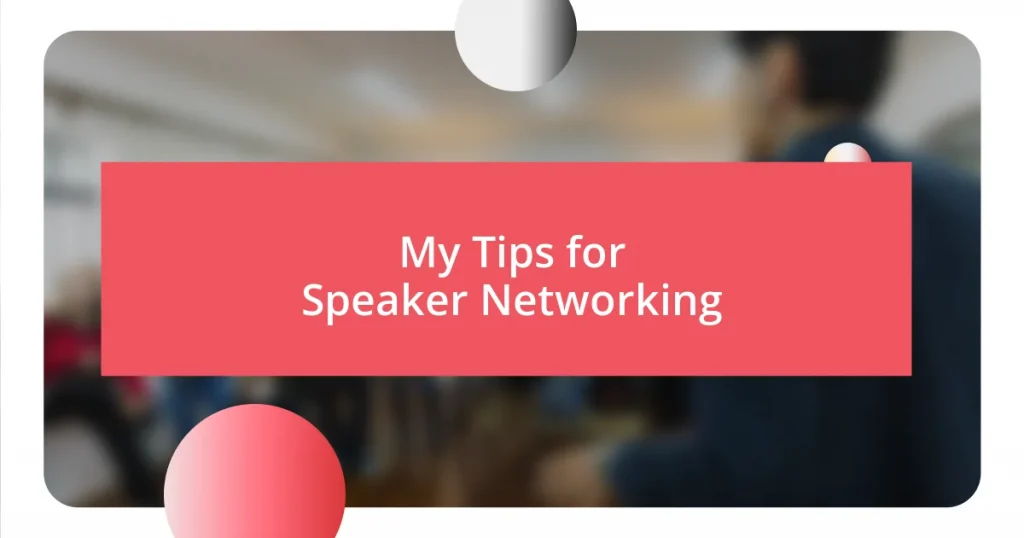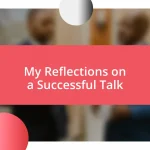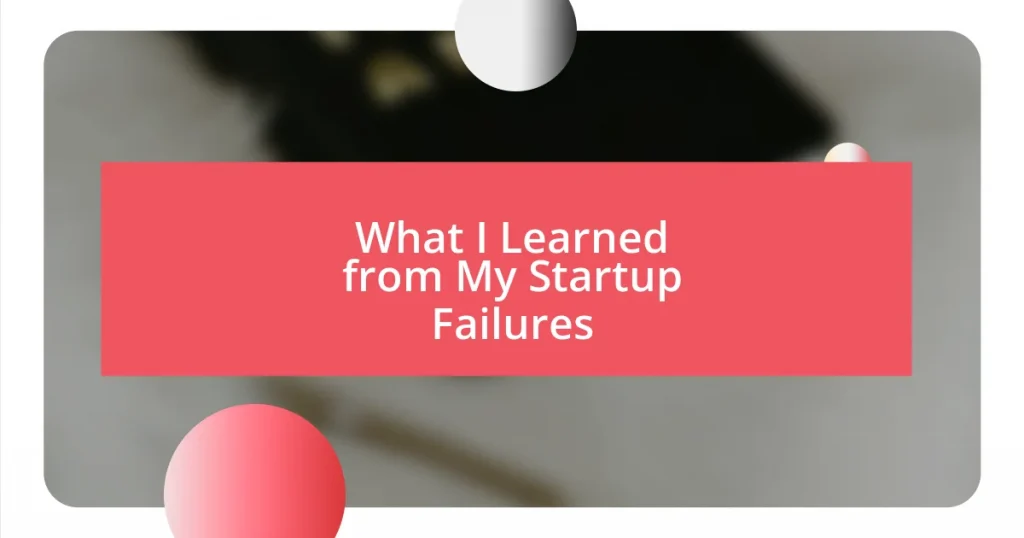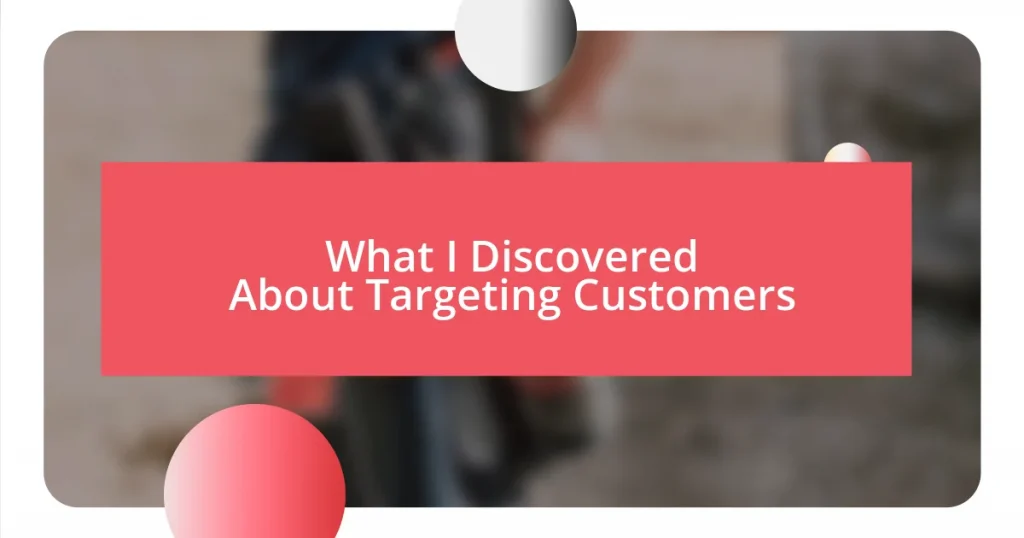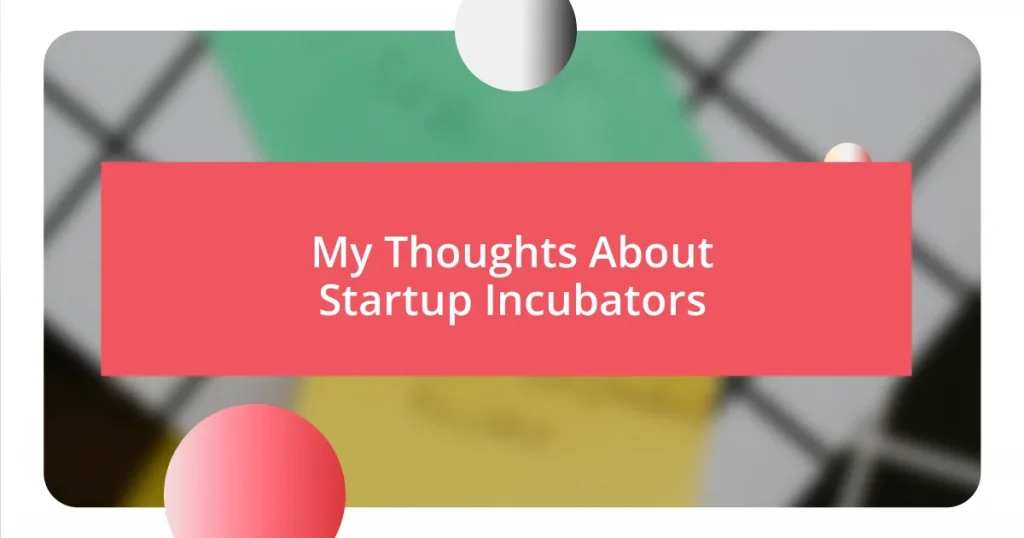Key takeaways:
- Networking is vital for unlocking career opportunities and fostering supportive professional relationships.
- Identifying and engaging in key networking avenues such as industry conferences, workshops, and online groups can lead to valuable connections and mentorship.
- Effective follow-up and leveraging social media enhance relationships and can lead to collaboration and deeper connections in the speaking community.
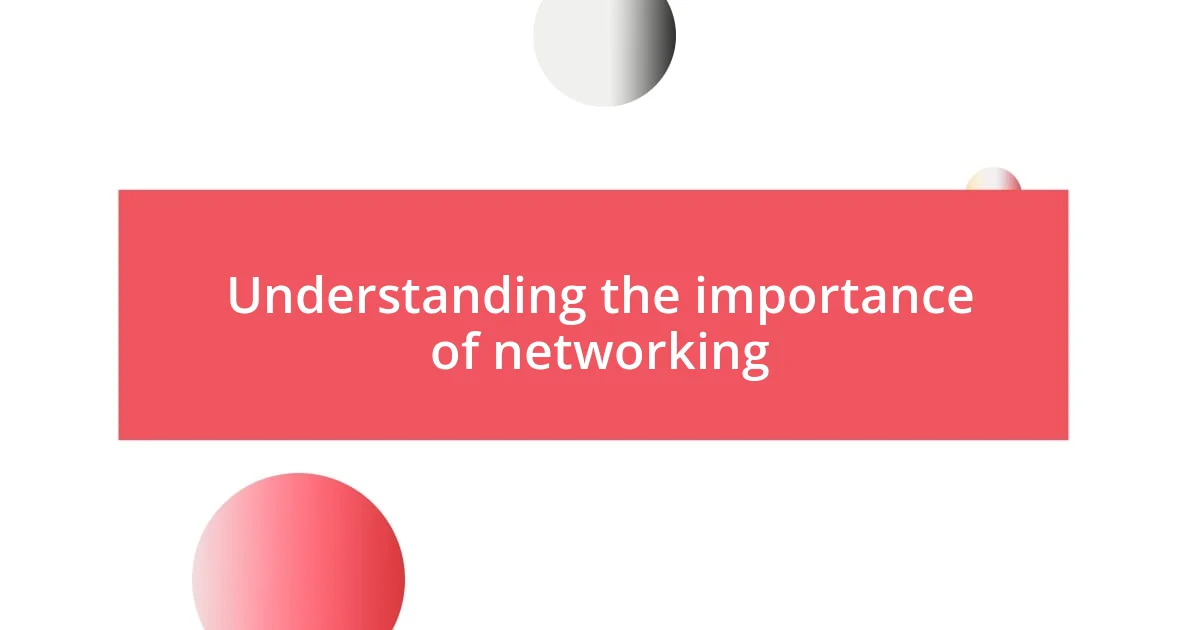
Understanding the importance of networking
Networking is essential because it opens doors to opportunities we might never encounter otherwise. I remember attending a conference years ago, where a simple conversation over lunch led me to collaborate on a project that marked a turning point in my career. Isn’t it fascinating how a single interaction can shift the trajectory of our professional lives?
When we think about networking, it’s not just about exchanging business cards or LinkedIn connections; it’s about building relationships that foster growth and support. I often find myself reflecting on the friendships made through work—it’s these bonds that offer encouragement during tough times and celebrate successes with genuine joy. Have you ever considered who might be your biggest cheerleader in the industry? It often starts with networking.
In today’s fast-paced environment, knowing the right people can be as crucial as honing your skills. I once felt the pressure of an impending job search and reached out to contacts I hadn’t spoken to in years. To my surprise, they not only offered valuable advice but also connected me with others who helped me land a fantastic position. Isn’t it incredible how maintaining those connections can pay off when you least expect it?
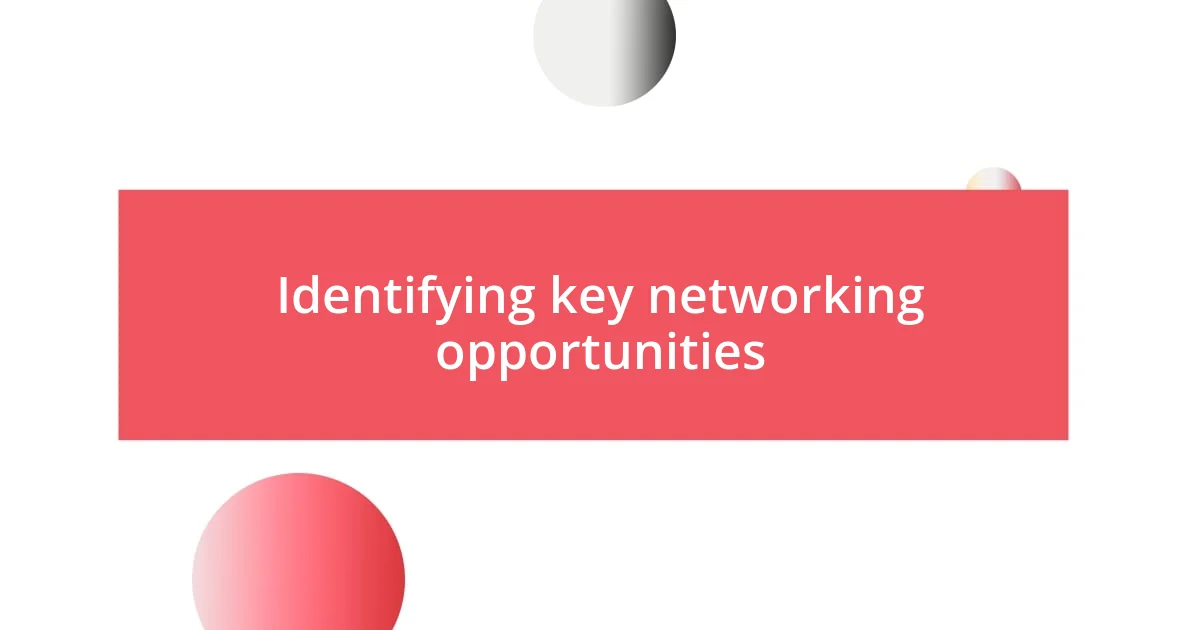
Identifying key networking opportunities
It’s important to keep an eye out for events and venues that consistently attract the industry professionals you admire. I’ve discovered that local meetups, forums, or even webinars can provide valuable chances to connect with like-minded individuals. I remember attending a small workshop where the facilitator was someone I deeply respected, and I seized the moment to introduce myself. That simple conversation led to a mentorship that has since shaped my career path.
When searching for networking opportunities, consider these key avenues:
- Industry Conferences: These are gold mines for meeting influential speakers and experts.
- Workshops and Seminars: Intimate settings encourage deeper conversations and connections.
- Online Networking Events: As remote work prevails, virtual meetups are a great way to reach broader audiences without geographical limits.
- Professional Associations: Becoming a member often grants access to exclusive events and insider information.
- Social Media Groups: Platforms like LinkedIn and Facebook host numerous groups catering to specific industries where networking thrives.
- Local Networking Groups: Don’t underestimate the value of community-based organizations; they can often lead to unexpected opportunities.
Keep these avenues in mind as you chart your networking journey. Each interaction could blossom into a valuable relationship!

Building your personal brand
Building your personal brand starts with clarity about who you are and what you stand for. I remember the early days of my career when I was trying to figure out my niche. It took time, but once I identified my unique strengths and values, I felt more confident in presenting myself authentically. Have you ever thought about what makes you stand out in your field? That revelation can be a game-changer.
It’s essential to communicate your brand consistently across various platforms. In my experience, having a professional profile on LinkedIn that mirrors my personal website has helped me create a cohesive image. I often share insights related to my expertise, and that has attracted genuine connections. When others observe a consistent message, they’re more likely to perceive you as a credible authority in your area.
Your personal brand isn’t just about what you say; it’s also about the connections you make. I recall an instance where I gave a talk at a local event, which led to numerous conversations afterward. Those discussions helped solidify my reputation in the community. When you engage with your audience, you not only reinforce your brand but also open doors for collaboration and network expansion. How do you engage with your audience?
| Elements of Personal Branding | Importance |
|---|---|
| Authenticity | Builds trust and attracts the right connections. |
| Consistency | Strengthens recognition and credibility across platforms. |
| Engagement | Fosters deeper relationships and showcases expertise. |

Crafting a compelling elevator pitch
Crafting an effective elevator pitch is all about clarity and impact. I recall a pivotal moment when I found myself sharing my passion with someone at a conference. I kept it simple, focusing on my mission and how I could add value to their events and projects. That straightforward approach not only captured their attention but ultimately led to an exciting collaboration that I still cherish today.
I believe every great pitch should spark curiosity, almost like a teaser that invites further conversation. You might ask yourself, “What’s the one thing I want the listener to remember?” I found that by clearly articulating my core message while keeping it concise, I was able to leave a lasting impression. This tactic is crucial because it focuses on the essence of what makes me unique, helping others understand my value proposition quickly.
Lastly, practicing your pitch in realistic scenarios can build confidence and polish your delivery. I used to practice mine at home, then gradually moved to pitching to friends and colleagues. Their feedback was invaluable! Have you ever rehearsed in a low-pressure environment? It made a world of difference for me, transforming nerves into excitement before stepping into real networking situations.
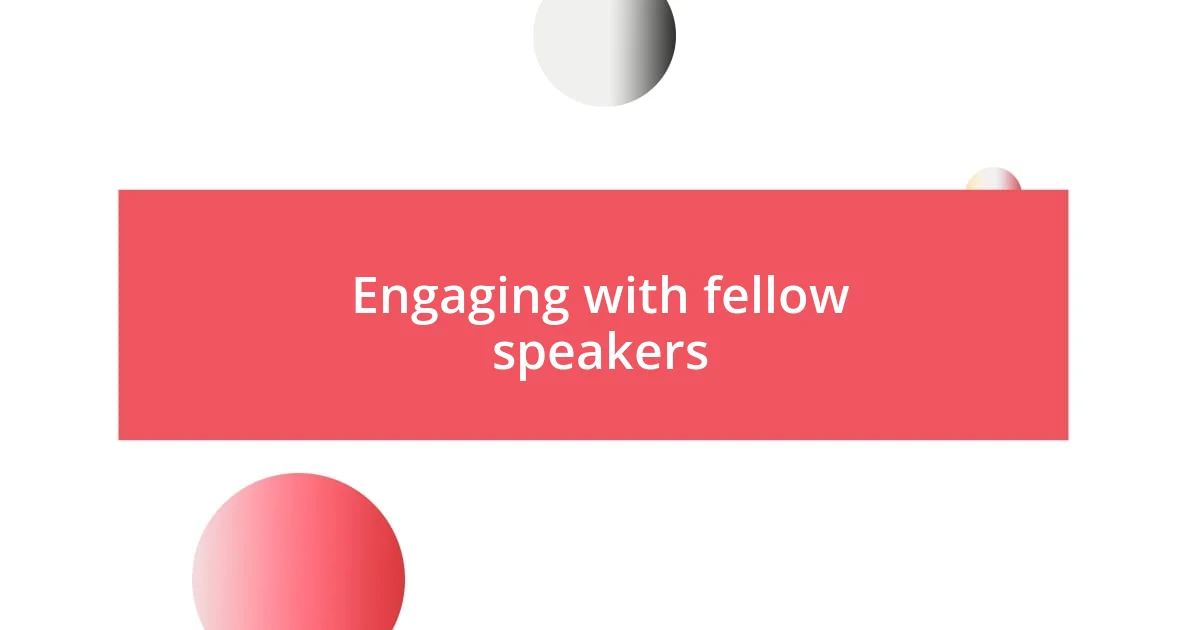
Engaging with fellow speakers
Engaging with fellow speakers is a unique opportunity to learn and grow collectively. In one memorable experience, I attended a conference and found that simply initiating casual conversations with speakers during breaks opened doors to valuable insights. I remember chatting with a speaker who shared their approach to storytelling, which inspired me to incorporate more narrative elements into my own presentations. Have you ever had a seemingly random conversation lead to a significant shift in your perspective?
While networking with other speakers, I discovered that shared experiences can build strong connections. I once partnered with a colleague for a workshop after bonding over our challenges in audience engagement. Discussing our struggles not only fostered rapport but also led us to create a richer session, blending our strategies for better engagement. How often do you take the time to connect on a personal level with your peers?
I also believe in the power of follow-up after events. After a speaking engagement, I make it a habit to send personalized messages to speakers I’ve connected with. I often mention a specific insight they shared or express gratitude for their time. This practice deepens our relationship and keeps the conversation alive long after the applause has faded. Have you thought about how a simple thank-you can lead to lasting professional friendships?
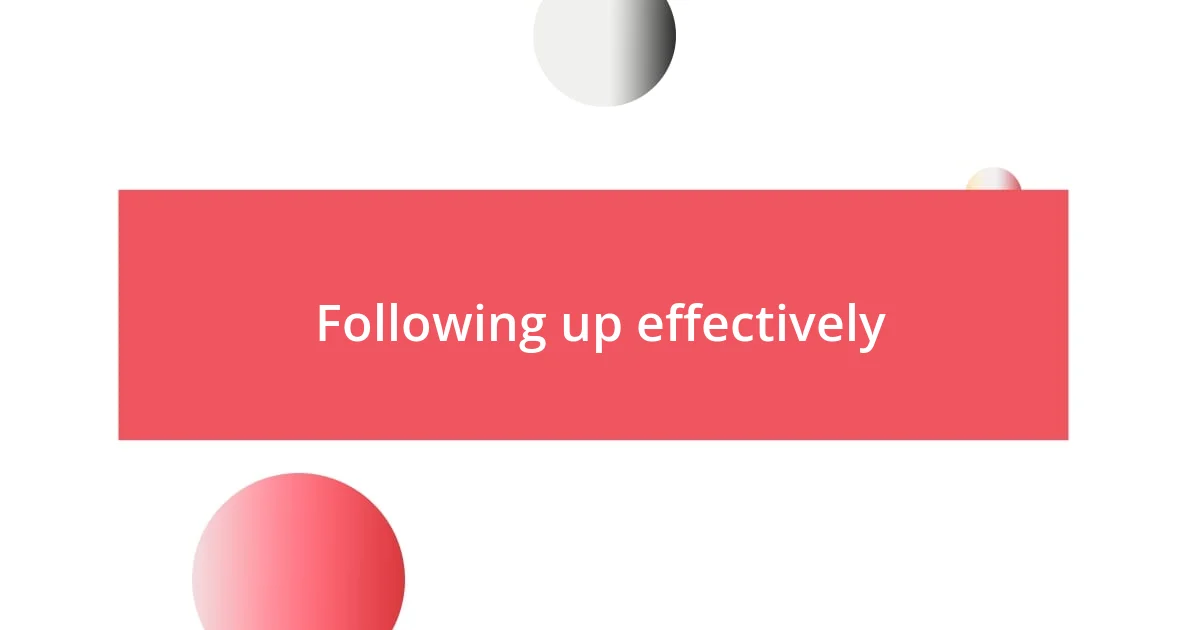
Following up effectively
Following up effectively is a key ingredient in keeping the networking momentum going. I remember a time when I followed up with a speaker after a workshop. I mentioned a specific point they made about audience engagement that resonated deeply with me. Their response was immediate and enthusiastic, which surprised me. It reinforced my belief that a personal touch can really make the follow-up stand out.
I’ve found that timing can also play a crucial role in effective follow-ups. After attending an event, I usually aim to connect within a week while the conversation is still fresh in both our minds. This approach not only shows my genuine interest but also helps in nurturing those budding professional relationships. Have you ever experienced the thrill of reconnecting with someone right when they’re thinking of you?
In my experience, a succinct message that references a shared experience can inspire further dialogue. For instance, after a panel discussion, I reached out to a fellow speaker about their unique perspective on panel dynamics. That simple message led to several insightful exchanges and even collaboration on future projects. Isn’t it fascinating how a small effort to follow up can blossom into something much bigger?
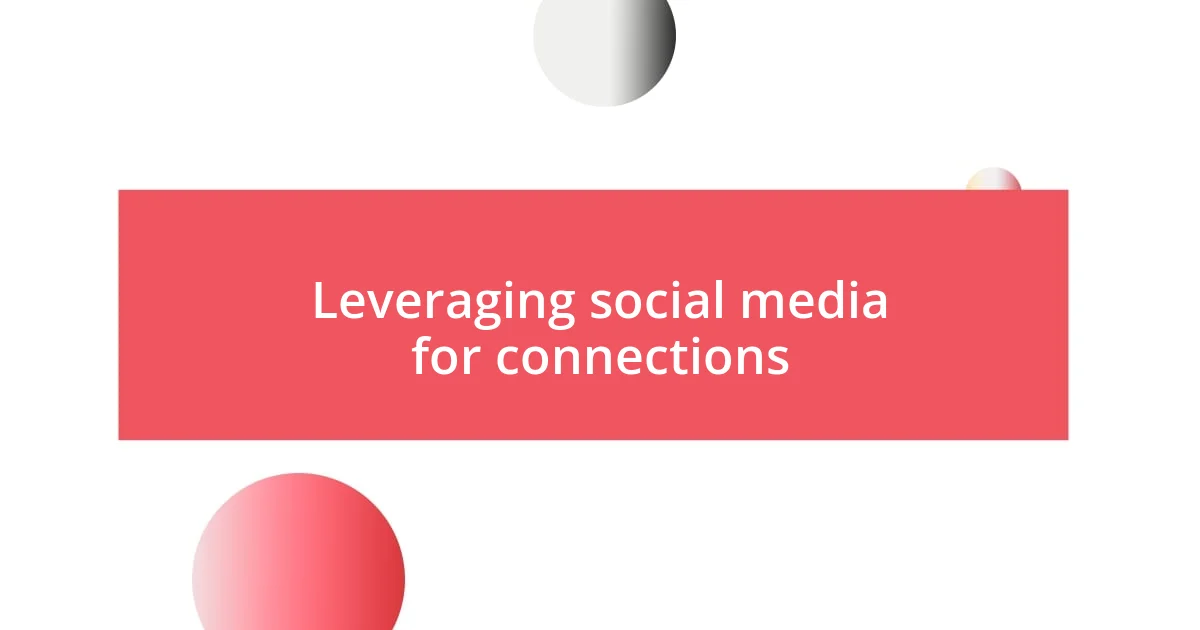
Leveraging social media for connections
Utilizing social media is a game changer for building connections in the speaking community. I recall during one of my speaking gigs, I took to Twitter to share my key takeaways from a session. It turned out that the featured speakers noticed my posts and engaged with them, leading to an unexpected exchange of ideas and even a few Instagram DMs that turned into deeper discussions. Have you ever thought about how a simple tweet could pave the way for a meaningful connection?
I also make it a point to join speaker-related groups on platforms like LinkedIn and Facebook. In one instance, I stumbled upon a group where members regularly share resources and experiences. I decided to contribute by offering my insights on audience engagement strategies. The feedback was incredibly positive, and it sparked conversations with others who were eager to connect. Isn’t it intriguing how shared interests can build a sense of community?
Moreover, I believe in the value of honoring those connections through regular engagement. After connecting with fellow speakers online, I frequently comment on their posts or share their content if it resonates with me. One time, this led to a virtual coffee chat that deepened our professional ties and even resulted in a co-hosting opportunity. Have you considered how nurturing those online relationships could transform into something tangible?
